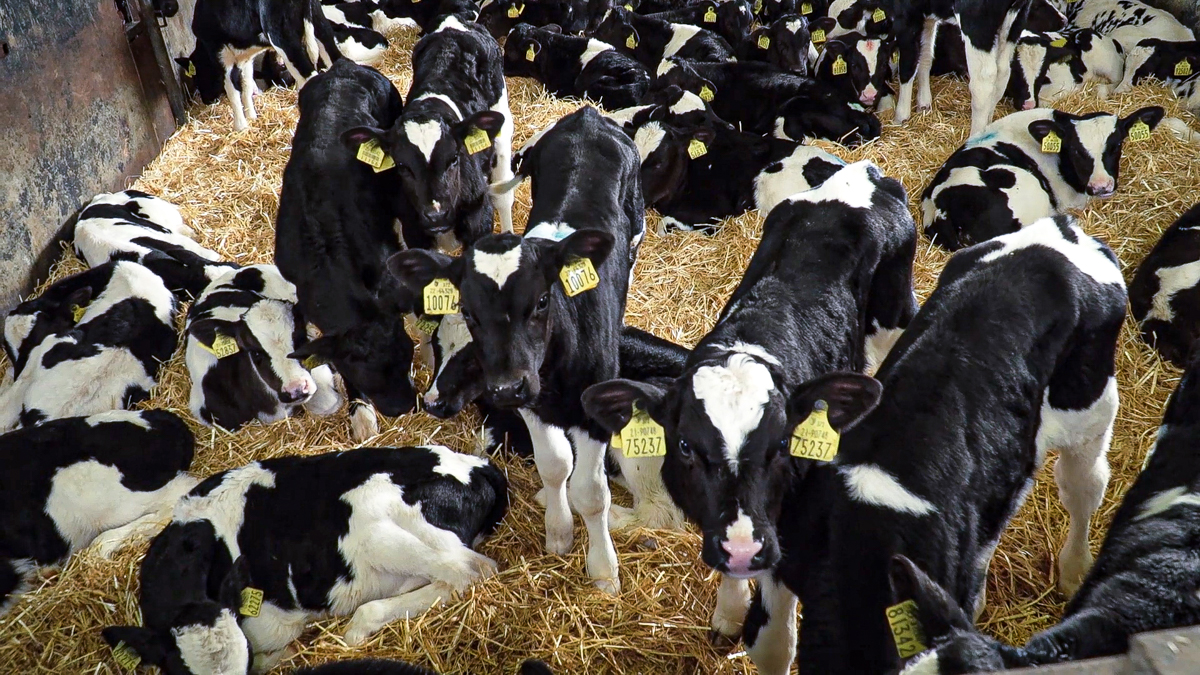Minister for Agriculture, Food and the Marine Charlie McConalogue has asked Teagasc to establish a separate nutrient excretion rate for young calves.
The move was confirmed by Minister of State Dara Calleary in response to a question in the Dáil from independent TD Danny Healy-Rae on the nitrates derogation.
From January 1, the upper organic nitrogen (N) stocking rate possible under the derogation will drop from 250kgN/ha to 220kgN/ha under the conditions of Ireland’s nitrates derogation.
Deputy Healy-Rae called for the reduction in the nitrates derogation to be “paused or deferred for a period of time”.
“Farmers had all of their cows and heifers in calf by the end of July at the latest, and then in September they were told this new regime would be coming into place from January 1, 2024.
“We can see the predicament many farmers are in now. There is no market at present for in-calf cows or heifers to be milked in the coming year because most farmers have their quota filled and their culled cows sold,” he said.
“To keep the same amount of cows, farmers would have to buy or rent more land and that is just not possible for most of them. The only option they have is to send their heavily in-calf cows or heifers to the factory for slaughter,” Healy-Rae added.
The Kerry TD called on the government to “pull out all of the stops” to ensure this issue is fully explained to European Commissioner for the Environment Virginijus Sinkevicius during his visit to Ireland today (Thursday, November 23).
Minister
Minister of State Dara Calleary said that the government “recognises the importance of maintaining Ireland’s nitrates derogation and is committed to seeking to maintain it into the longer term”.
“However, to do this, we must all act together to improve water quality. Our current derogation includes a requirement for a two-year water quality review,” he said.
Minister Calleary said it is critically important that farmers have clarity on the nitrates derogation, and that will be the focus of Commissioner Sinkevicius’ visit.
“As the engagement continues, however, it is prudent that we continue to prepare for the move to the lower maximum stocking rate,” he added.
“It is important to clarify that the move to 220kg does not mean that on January 1 next year an impacted farm must be at or below 220kg of livestock manure nitrogen per hectare.
“As is normal practice, compliance with the new maximum allowance will be assessed on a calendar year basis after year-end.
“Obviously, in order to ensure farmers are compliant overall by the end of 2024, it would be beneficial if action were taken early to ensure an orderly transition to the new derogation regime,” Calleary said.
Calves
Minister of State Dara Calleary told the Dáil that Minister McConalogue has engaged with Teagasc on the issue.
“To reduce the pressure to move young calves off-farm, the minister has asked Teagasc to establish a separate nutrient excretion rate for young calves, rather than the current situation, where they are considered in the overall bovine category from zero to 12 months.
“Teagasc has also been asked to investigate the impact of reducing the maximum crude protein content of concentrates fed to dairy cows at grass.
“This may justify a reduction in the dairy cow’s nutrient excretion rate due to the lower crude protein intake.
“Furthermore, the Minister has asked Teagasc to review the calculation of the nutrient content of cattle slurry,” Calleary said.
The minister of state encouraged all impacted farmers to engage with an agricultural advisor to explore the best options available to allow them to adjust to the new limit.
Farmers
Deputy Danny Healy-Rae said that the “vilification of farmers and the cow” is preventing young people from entering farming.
“There is no encouragement. They feel like they are blamed for the rain, the heat and everything else.
“No other industry or anything else is tackled in the same way as the poor farmer and the cow farmers.
“There is no comeback on lads up in aeroplanes or whatever, but the farmer is an easy target. Many farmers are going to go out of business,” he said.
Minister Calleary agreed that the vilification of farmers is wrong and that everybody has to shoulder the burden of climate change.
“If we are to have a proper debate on climate change, which is real and happening and will be very real for every person, then vilifying one sector will not allow that,” he said.
